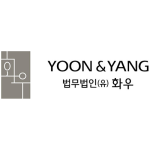As one of the only two IFLR1000 rated Market Leaders for competition law in South Korea, what do you consider to be the greatest achievements of your career?
Broadly speaking, as a member of the legal profession, I believe that I have helped enhance the rule of law in Korea both as a lawyer and as a managing partner of a leading law firm in Korea. In 1989, when I returned from the United States - where I had practiced as a partner of Baker & McKenzie in Chicago and New York, I established Yoon & Partners in Korea. In 2003, I combined the firm with another to create Yoon & Yang, where I serve as managing partner. I believe that the firm is a world-class leading law firm based in Korea that complies with highest ethical standards, provides the highest-quality legal services, and promotes democratic interpersonal relationships.
More narrowly, as a member of the competition community, I believe that I have contributed to enhancing the competition environment both as a competition law practitioner and as a leader of the competition community; for example, I have served as a non-standing commissioner of the Korea Fair Trade Commission; chairman of the Korea Competition Forum; chairman of the Asia Competition Association; a member of the international cartel task force and the international task force of the American Bar Association’s section of antitrust law; and a non-governmental adviser to the International Competition Network.
What does your firm do to nurture and promote talent? Do you think it compares well to others in your market in this area?
Yoon & Yang is one of the most active law firms in Korea in terms of educating attorneys and other professionals. First-year associates are required to participate in a one-month internal education programme led by junior partners, giving them a basic understanding of all the practice areas of the firm and thoroughly preparing them for their own careers in practice.
|
|
If I could introduce one policy across the entire legal profession, it would be a set of mechanisms designed to enhance the rule of law in Korea |
|
|
Our firm regularly runs internal seminars and encourages its professionals to share new information with our clients and internally. These efforts help to keep our team members up to date with industrial trends, the latest legal issues and regulatory trends, and to nurture talent at senior associate and partner level. For instance, as part of a drive to provide more active legal services, Yoon & Yang’s corporate practice group has been holding weekly internal seminars to study new industries or areas, such as Covid-19, the fourth industrial revolution, and fintech.
Yoon & Yang is the first Korean law firm to establish an in-house training centre: the Yoon & Yang Academy. The Academy provides well-organised educational programmes, from lectures delivered by outside lecturers - including experts from industry and university professors - to language courses in English, Chinese, and Japanese, as well as case study courses aimed at analysing current legal issues in depth. In addition, the firm also provides associate attorneys who have worked for the firm for a certain number of years with the opportunity to study abroad for their degree at leading law schools or business schools in the US, the UK or Singapore.
If you could introduce one policy across the entire legal profession what would it be?
If I could introduce one policy across the entire legal profession, it would be a set of mechanisms designed to enhance the rule of law in Korea. I believe that during the past several decades the rule of law in Korea has been substantially enhanced along with Korea’s economic development and political, economic and social democratisation. In my view, however, Korea still has much to do to enhance its rule of law, and the legal profession can and should work together to accomplish a very high level of rule of law in Korea.
Are there any initiatives in the firm to help your clients deal with the repercussions of the Covid-19 pandemic?
Yoon & Yang makes its utmost effort to provide swift and timely solutions for our clients that are facing issues relating to the Covid-19 pandemic. The firm’s management and its partners have set the following two goals: first, to ensure the highest quality of work despite the limitations on contact with clients; and second, to provide our clients with uninterrupted professional advice to address the uncertain business conditions.
|
|
Yoon & Yang is the first Korean law firm to establish an in-house training centre: the Yoon & Yang Academy |
|
|
Specifically, the firm is actively using virtual meetings for domestic clients that do not want to have face-to-face meetings and foreign clients that cannot go on business trips. Yoon & Yang’s attorneys and staff are making efforts to make clients feel that they are receiving adequate advice from a professional team composed of the best professionals and to assure them that it is still possible to receive the best legal advice any time, while working from home, using virtual meetings and conference calls, among other things.
Furthermore, our firm has created a Covid-19 task force and a dedicated Covid-19 website for clients that are concerned about business. Composed of professionals from all 11 practice groups, the Covid-19 task force presents pre-emptive and comprehensive solutions to companies. For example, when our clients ask questions about labour/employment issues related to working from home resulting from the spread of Covid-19 in South Korea, we not only provide advice on the labour/employment issues but offer comprehensive advice including on privacy issues related to the provision or disclosure of information on the places their employees have visited.
Moreover, firm’s legislative consulting and government relations team provides clients with newsletters that are regularly updated with analysis of the government’s business support policies. The team also keeps a close watch on any changes in the policies of major trading partners. In the expectation of imminent contract disputes, our international arbitration team is also providing swift legal advice, alongside Yoon & Yang’s local law firm partners, on legal issues including force majeure or terminations by reason of a change in circumstances, for example, in markets where our domestic corporate clients are active. The Covid-19 website is used to provide real-time updated information on issues across each sector via newsletters, press releases, and reports from major agencies, among others.
Market trends
Given the market environment in Korea what would you consider to be the outlook over the coming year?
The Korean government is actively strengthening administrative enforcement not only in the areas of cartels and abuse of dominance (especially in the ICT sector) but also in the areas of distributorships, franchising and subcontracting, which are unique in Korea. Criminal and civil damages are also increasing significantly. I expect these trends will continue over the coming year.
What kind of work do you expect will keep you busy over the next 12 months?
Over the next 12 months I expect to keep busy with continuing, to the extent possible, to work on major antitrust and international business matters for our clients, help develop next-generation leaders of Yoon & Yang, and help to develop next-generation leaders in the antitrust community in Korea and at the Asia Competition Association.
Are there any upcoming regulatory changes or initiatives that investors should be aware of?
First, the Korean government is strengthening regulatory enforcement to protect economically disadvantaged parties in distributorships, franchises, and subcontracts. This trend is expected to continue onwards this year. Since there are a handful of regulations dealing with distributorships, franchise agreements and subcontracts that are unique in South Korea, foreign companies that plan to invest in the country must be aware of such regulations.
|
|
It is highly likely that the government will double down on cartel and abuse of dominance cases by strengthening its law enforcement capabilities |
|
|
Second, we expect more stringent regulatory enforcement actions in cartels and the abuse of market dominance cases. Despite the fact that over recent years the government has prioritised and focused on chaebol reforms and the regulating of unfair practices in large companies to protect economically disadvantaged parties, enforcement of cartels and abuse of market dominance have become more lax. However, it is highly likely that the government will double down on cartel and abuse of dominance cases by strengthening its law enforcement capabilities.
Third, enforcement procedures in the information, communications and technology (ICT) sector will be strengthened. The Korea Fair Trade Commission (KFTC) has established a task force solely dedicated to overseeing the ICT industry sector. The ICT Task Force is composed of three sub-divisions: online platforms, mobile, and intellectual property rights. Its main task is to conduct professional and swift investigations into unfair practice cases involving domestic and foreign platform and other ICT companies, and to establish related statutes and guidelines.
Fourth, in a departure from past practice, where companies have usually only become subject to administrative sanctions once they have violated antitrust laws and regulations, recently, companies have become subject to criminal investigations and civil lawsuits in an increasing number of cases. As the damages imposed on a violating company have significantly increased, companies should be aware of regulatory compliance.
What is the one thing you think the IFLR’s international audience should know about how to successfully do business in your market?
As Korea’s regulatory agencies responsible for antitrust/competition, labour, environment and privacy, as well as industry specific regulators, the criminal authorities and the courts, all become increasingly active and sophisticated, IFLR’s international audience should be acutely aware of the importance of compliance with relevant rules and regulations in Korea.


